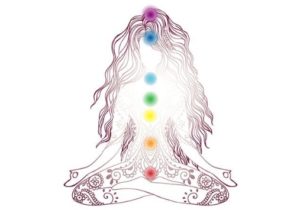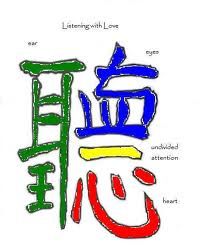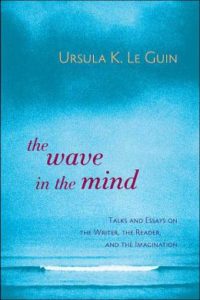Presence of grace.
July 28, 2017‘Enlightenment is the moment we realize that we are made of love. At that moment, all fear of living disappears. For grace comes to the heart when it realizes what it is made of and what it has risen from. In that moment, grace comforts us, that no matter the joy or pain along the way, we are already a part of where we are going. Enlightenment for a heart on Earth is the moment we accept that it is the loving that makes waves of us all, again and again and again.’
-Mark Nept/Book of Awakening
✿
Love is like a soft, warm light, warming the heart and glowing in every atom of being, radiating out into the farthest corners of our experience.
-Jack Addington
✿
Heaven is within woman. This is why Jesus prayed to this indwelling “I am” and said: “Our Father/Mother which art in Heaven,” and again he said: “The Kingdom of heaven is within you.”
-Science of Mind, p. 365
✿
‘This is the story of our human incarnation on the planet. We continue to die daily and to be reborn again. Surprisingly, yes, there is more to forgive, more to embrace about our own humanity and the humanity of our brothers and sisters who have chosen to walk with us. Our human incarnation is a holy walk when we choose to see it as such. It is a deliverance from the fears and doubts that may plague us in the beginning but which cannot withstand the onslaught of all-encompassing love of Gaia.
How grateful I am that throughout all of it, I have been so loved, so guided and so cared for. This is the promise for those who are courageous enough to stay the course. The expanded love you embrace with each resurrection never dies, and you are in love for the rest of your life.’
-Rev. Karen S. Wylie
✿
‘To practice the Presence of God is to awaken within us the Christ Consciousness. Christ is God in the soul of woman. The resurrection is the death of the belief that we are separated from God. For death is to the illusion alone and not to Reality God did not die. What happened was that woman awoke to life.’
-Science of Mind, p. 413
✿
‘Today I imbibe new ideas from the creativity of Gaia. My whole consciousness is alive and awake and aware. It is impregnated with Divine ideas and shall bear fruit after the image of the impression conceived within it and the Divine imprint made upon it. Today, then, I expect new ways of doing things; I expect to meet new people, form new friendships; I expect everything in my experience to enlarge and deepen and broaden. I expect more good that I have every experienced before, and today I expect to give out more, to increase my love for others. Today I expect from myself a more gently approach to life, a more kindly feeling, a more beneficent impulse. New thoughts, new ideas, new people, new situations, new ways of doing things, and a new influx of the Divine will make this day perfect, glad, and expressive limitless bounty from the storehouse of the Infinite Good.’
-Science of Mind
Mark Nepo/’The One Life We’re Given’
✿
A difficult paradox in the life of feeling is that when we are most sensitive, the heart is at its strongest. In such moments, our experience of deep love and suffering can feel intolerable. But this means the heart is working. Feeling such intense sensitivity is evidence of what a finely tuned instrument the heart is. Being so sensitive, life can feel unbearable even while the heart that guides us is going strong. Our challenge is to learn from both the sensitivity and the strength.
When strong enough to endure life’s irritations, the soul we carry can issue a pearl. If able to endure the pressures that life puts on us, the heart can be compressed into a small diamond. The word ‘diamond’, from the ancient Greek ‘adamas’, means ‘unbreakable.’ When most sensitive, we’re being compressed into what is unbreakable.
What’s unbreakable waits behind what’s unbearable, the way the quenching waters of life wait behind all the dams we build. And all my attempts to love have taught me that resilience waits in the very center for all that’s broken to be swept away in order to reveal what can’t be broken. Though the process of shedding feels unbearable, we have to endure this in order to uncover what is lasting and true.
Inevitably, crossing into life for love is what saves us. At unexpected times, our care leads us to dive into the world to save something we love by holding it close to our heart.
We resist this process of being irritated into a pearl, of being pressurized into a diamond. Yet each of us has to feel our way into the authenticity of a self from which to meet others and the world, only to be opened beyond the defines of a single self, so we can be renewed and vitalized by what we have in common. For what is unbearable is acutely personal, which when endured leads us to the seed of what is universal, which is unbreakable. When we can earn the presence of being completely ourselves we join a lineage of those who were completely themselves. Feeling our way into this kinship lets us feel the presence of souls across time.
What feels unbearable is how life carves us into a work of art that is never finished. When in difficult experiences, we fear they will never end. When in wonderful experiences, we fear they will end. But there’s no arrival, only inhabiting the journey, alone and together. The cycle of life and our engagement in it never stays the same. It rises and falls. It compresses and expands. And staying committed to this roller coaster that spins us upside down is how we experience all of life and all of time through the depth of our own feeling.
When I can inhabit the fullness of my own humanity, I reach the bottom of my personality, and through the thoroughness of living the one life I have, I touch into the well of all humanity. It’s there that resilience lives. And feeling what is mine to feel to the best of my ability enables me to feel the swell of everyone who ever lived. It’s there that I know in my bones that I am not alone. It’s there that I am buoyed and uplifted by the One Eternal Heart we are all a part of.
It’s as if the heart is a wick and the soul is its flame, and the burn of the soul feeding off the air of the world feels unbearable as it shapes us. But as long as it burns, we’re alive and unbreakable.
✿
Emerson Collective
https://www.theatlantic.com/amp/article/535215/
David G. Bradley, the chairman and owner of Atlantic Media, is announcing this morning that he is selling a majority stake in The Atlantic to Emerson Collective, an organization led by philanthropist and investor Laurene Powell Jobs. Bradley will retain a minority stake in The Atlantic and will continue as chairman and operating partner for at least three to five years. In a letter to his staff, Bradley wrote that Emerson Collective will most likely assume full ownership of The Atlantic within five years.
Bradley, who bought The Atlantic in 1999 for $10 million from Mortimer Zuckerman, is credited with transforming the Boston-based monthly magazine of politics, arts, and letters into a profitable digital-journalism and live-events company of global reach, even while continuing to publish The Atlantic’s award-winning print magazine, which was born four years before the Civil War. “Against the odds, The Atlantic is prospering,” Bradley wrote in his memo. “While I will stay at the helm some years, the most consequential decision of my career now is behind me: Who next will take stewardship of this 160-year-old national treasure? To me, the answer, in the form of Laurene, feels incomparably right.”
[…]
In his statement, Bradley said that Powell Jobs will most likely visit the Washington and New York offices of The Atlantic in September. Bradley closed his note to the staff by saying, “What I loved about Laurene from the first is that her confidence was forged on a different coast.” He added, “And, if anything, her ambition is greater than my own.” Making reference to the generally bleak commercial forecast for journalism in the United States, he wrote, “Let’s make it our work to prove the wisdom of our era wrong. And when my time comes to leave, that would be a happy note on which to say ‘good-bye.’”
︶⁀°• •° ⁀︶
In one soul, in your soul, there are resources for the world.
emersoncollective.com
Our Mission
A LETTER FROM LAURENE POWELL JOBS
With those startling words, Ralph Waldo Emerson enlarged our conception of the value of a human life. I read his simple declaration about the reach of human capability as a statement of fact: there really is within each of us the potential to improve the world around us. But Emerson’s line is not only a description, it is also an imperative: while all of us possess this transformative potential, too many of us don’t get the chance to fulfill it — which means that we all have work to do.
At Emerson Collective, this is what drives us every day. If we’ve helped someone transcend the limits of circumstance and chart a new course for themselves and their families, we know we’re fulfilling our mission. Like our namesake, we believe deeply in self-reliance; but we recognize that the road to self-reliance sometimes leads through reliance on others. We trust that hard work and determination can make anything possible, but opportunities for hard work and determination must be found and even created.
For people trapped in the quagmire of poverty and disenfranchisement, a strong will to overcome the odds is rarely sufficient to beat them. For the 22 percent of children born into poor neighborhoods in the U.S., hard work will not likely be enough to overcome the obstacles they will face, including those that remain invisible to outsiders. For students in challenging environments—where schools are chronically short of funds, where advanced classes in high school are non-existent, where expectations are often low and mentors are few—force of will alone cannot ensure a college education and a bright future. And for families forced into the shadows by a dysfunctional immigration system, perseverance cannot secure legal status and equal rights.
Qualities of character, in other words, must be supplemented and supported by policies and inspirations. These lives, these communities, are gardens of promise, but they need water in order to flourish.
Many years ago, I visited a nearby high school where students were working to defy the odds and do something very difficult: to become the first in their families to earn a college degree. They had the same dreams and talents as students from neighboring communities, but faced far more daunting obstacles. As the first to apply to college, the first to attend and to graduate, and the first to embark on a professional career, they faced, at every stage, uncharted territory.
It takes a unique brand of boldness to envision—and pursue—a future so different from the world that surrounds you. These students possessed courage and drive, but lacked the gateways to achieve their dreams—this struck me as a great injustice. It inspired me to launch a program called College Track—which has, to date, guided and supported thousands of students on their quest to earn college degrees, most of whom are the first in their family to reach this pivotal milestone.
Today in the United States, with few exceptions, where a person is born determines how far he or she can go in life. Among developed countries, the U.S. ranks second to last in economic and social mobility. This is shameful. It wasn’t always this way—and it doesn’t have to stay this way. This is not how we want our country to work.
This imperative underpins both the moral and practical mission of our work at Emerson Collective: we are idealists with our feet on the ground. Students can’t become self-reliant adults unless we give them an excellent education and a pathway cleared of obstacles. Immigrants can’t contribute their fullest to our communities, can’t live open and free and productive lives, unless they are liberated from the fear of detention and deportation. Complex systemic failures require flexible approaches, new models, and improved public policy. Every day with new ideas, true numbers, and smart practices, we at Emerson Collective do our part to advance these solutions. We do so in partnership with innovative thinkers, entrepreneurs, and organizations — with the broad community of concern and solidarity that we seek to foster.
Our basic belief, as Emerson taught, is that we are doubly obligated: we must rely on ourselves and we must rely on each other. By helping individuals to achieve their dreams, we unleash the full force of the world’s most powerful resource: human potential.

Laurene Powell Jobs
Listening between the lines.
“Words are events, they do things, change things. They transform both speaker and hearer; they feed energy back and forth and amplify it. They feed understanding or emotion back and forth and amplify it.”
-Ursula K. Le Guin
Maria Popova/Brainpickings
But the magic of human communication, Le Guin observes, is that something other than mere information is being transmitted — something more intangible yet more real:
In most cases of people actually talking to one another, human communication cannot be reduced to information. The message not only involves, it is, a relationship between speaker and hearer. The medium in which the message is embedded is immensely complex, infinitely more than a code: it is a language, a function of a society, a culture, in which the language, the speaker, and the hearer are all embedded.
Paralleling Hannah Arendt’s assertion that “nothing and nobody exists in this world whose very being does not presuppose a spectator,” Le Guin points out that all speech invariably presupposes a listener:
In human conversation, in live, actual communication between or among human beings, everything “transmitted” — everything said — is shaped as it is spoken by actual or anticipated response.
Live, face-to-face human communication is intersubjective. Intersubjectivity involves a great deal more than the machine-mediated type of stimulus-response currently called “interactive.” It is not stimulus-response at all, not a mechanical alternation of precoded sending and receiving. Intersubjectivity is mutual. It is a continuous interchange between two consciousnesses. Instead of an alternation of roles between box A and box B, between active subject and passive object, it is a continuous intersubjectivity that goes both ways all the time.
Listening is not a reaction, it is a connection. Listening to a conversation or a story, we don’t so much respond as join in — become part of the action.
[…]
When you can and do entrain, you are synchronising with the people you’re talking with, physically getting in time and tune with them. No wonder speech is so strong a bond, so powerful in forming community.
[…]
The living response has enabled that voice to speak. Teller and listener, each fulfills the other’s expectations. The living tongue that tells the word, the living ear that hears it, bind and bond us in the communion we long for in the silence of our inner solitude.



